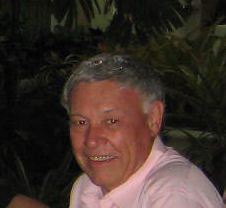Venture capitalist and LinkedIn cofounder Reid Hoffman has a simple but powerful piece of advice for strategizing in business: Figure out your ideal outcome and work backward from there.
Hoffman explained the approach during an episode this week of The Tim Ferriss Show, in which investor and author Ferriss asked Hoffman how he came to be known as the firefighter at PayPal, where he was an early board member, and how aspiring entrepreneurs can replicate those tactics.
“It starts with, what is the end result that you want to have happen?” said Hoffman, using the example of convincing a regulator that your company is not subject to regulation that might appear applicable.
Hoffman was speaking specifically about when the founders of PayPal decided the company would not be a bank, after applying for a banking license. The challenge the so-called firefighter faced was convincing regulators that while Paypal accepted deposits, the company still wasn’t a bank.
“One key thing is regulators will never tell you that it is not their job to regulate you,” explained Hoffman, continuing, “What they will say is that actually here there is nothing for me to actively regulate.”
So Hoffman worked backwards from what he understood to be the actual mindset of regulators to convince them that there was nothing the company was doing that they needed to regulate. That thought process took the form of several questions that can be applied in a variety of situations:
- How do they (regulators or whoever you need to persuade) make judgments?
- What are the key considerations they take into account?
- How can you learn about those considerations?
- Who do you need to need to know? (Put another way, who is knowledgeable about the topic at hand?)
“What are the kinds of things that would get them to say, ‘Okay, I think you’re being reasonable within my purview of how I am out to help govern society, help protect consumers, help protect other entities – you’re good by me,’ ” said Hoffman.
The venture capitalist, who has a Master of Studies in philosophy from Oxford, said he learned to strategize from playing games of strategy by the company Avalon Hill as a child. Knowing how games worked taught him how to structure a game, which taught him the type of reverse-causal thought pattern he espouses.
Hoffman highly recommends playing games, especially against human players, as a way of developing a strong sense of strategy. He said playing sports can also be helpful, though he cautioned that rules in sports tend to be rigid in contrast to the ever-changing rules of the marketplace. Other than games, he recommended reading military strategy by philosophers and strategists like Sun Tzu, the Chinese general who wrote The Art of War.
Hoffman cautioned that a lot of people think themselves better at strategy than they in fact are. One of the most important parts of strategizing, whether the situation is dealing with a competitor or convincing a regulator to get off your company’s case, is flexibility and adaptability he emphasized. Companies that can’t adapt are the ones that crash and burn.
“They learn to play one game, they get good at it, and then the marketplace changes and now it’s a new kind of game and you have to adjust to playing that new game. That’s actually in fact part of recognizing when a strategy applies,” he said.
Additional Reading
http://fourhourworkweek.com/2015/08/31/the-oracle-of-silicon-valley-reid-hoffman-plus-michael-mccullough/










